Search Results for: Ants
Skip to resultsCan’t find what you’re looking for? Visit our FAQ page.
1,665 results for: Ants
-
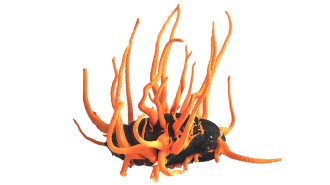 Life
LifeWhy these zombie caterpillars can’t stop eating
Sneaky chemistry by a real-life “Last of Us” Cordyceps fungus mind controls its zombie insect victims by convincing them they’re starving.
By Susan Milius -
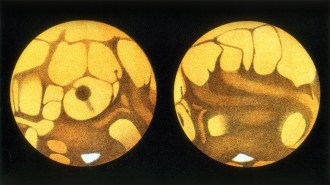 Planetary Science
Planetary ScienceHow alien ‘canals’ sparked debate over life on Mars
In The Martians, journalist David Baron recounts scientific and public debate over purported intelligent life on the Red Planet.
-
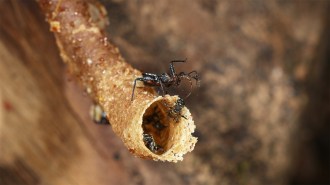 Animals
AnimalsThis tool-wielding assassin turns its prey’s defenses into a trap
This assassin bug's ability to use a tool — bees’ resin — could shed light on how the ability evolved in other animals.
-
 Paleontology
PaleontologyThese fossil finds shed new light on the past in 2025
The year's top paleontological wonders ranged from a 540-million-year-old penis worm to a decades-old rodent impression.
-
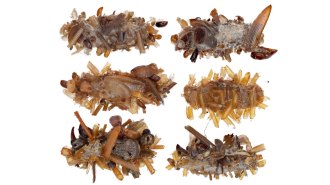 Animals
AnimalsThis caterpillar wears the body parts of insect prey
Dubbed the “bone collector,” this caterpillar found on a Hawaiian island disguises itself while stalking spider webs for trapped insects to eat.
-
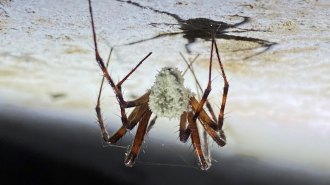 Animals
AnimalsA fungus named after Sir David Attenborough zombifies cave spiders
The new fungus species Gibellula attenboroughii forces reclusive cave spiders to exposed areas, likely to benefit spore dispersal.
-
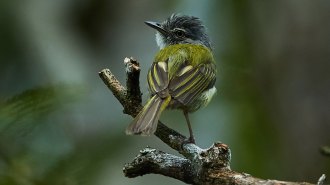 Animals
AnimalsBird nests made with a toxic fungus seem to fend off attacking ants
Two species of birds in Costa Rica build nests in trees defended by ants. Ants that encounter the horsehair fungus in the nests develop odd behaviors.
-
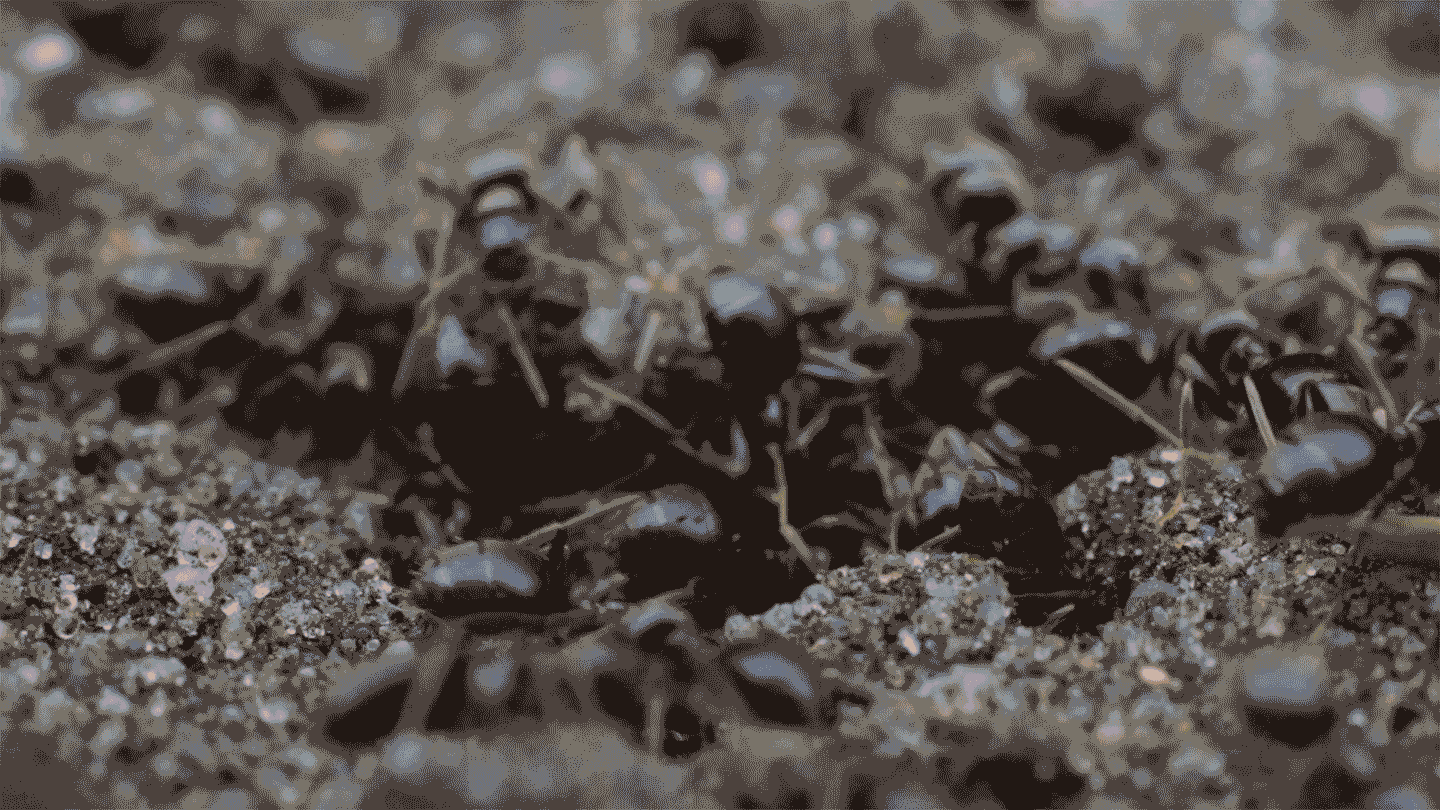 Animals
AnimalsAnts changed the architecture of their nests when exposed to a pathogen
Black garden ants made tweaks to entrances, tunnels and chambers that may help prevent diseases from spreading.
-
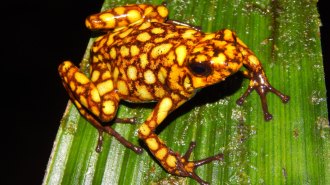 Life
LifeToxin-gobbling bacteria may live on poison dart frog skin
Toxins on poison dart frog skin mold the skin's microbial community, boosting species variety and potentially even feeding some daredevil bacteria.
By Jake Buehler -
 Quantum Physics
Quantum PhysicsQuantum mechanics was born 100 years ago. Physicists are celebrating
Quantum physics underlies technologies from the laser to the smartphone. The International Year of Quantum marks a century of scientific developments.
-
 Life
LifeThis biophysicist’s work could one day let doctors control immune cells
The Stanford biophysicist thinks that understanding the mechanics of cell movement could allow scientists to manipulate immune cells.
By Meghan Rosen -
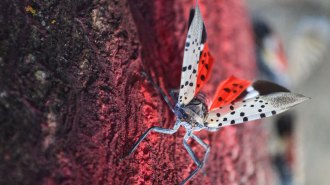 Life
LifeSquashing the spotted lanternfly problem may require enlisting other species
The invasive spotted lanternfly has spread to 17 states and can threaten vineyards. But bats, fungi, dogs and even trees may help control them.